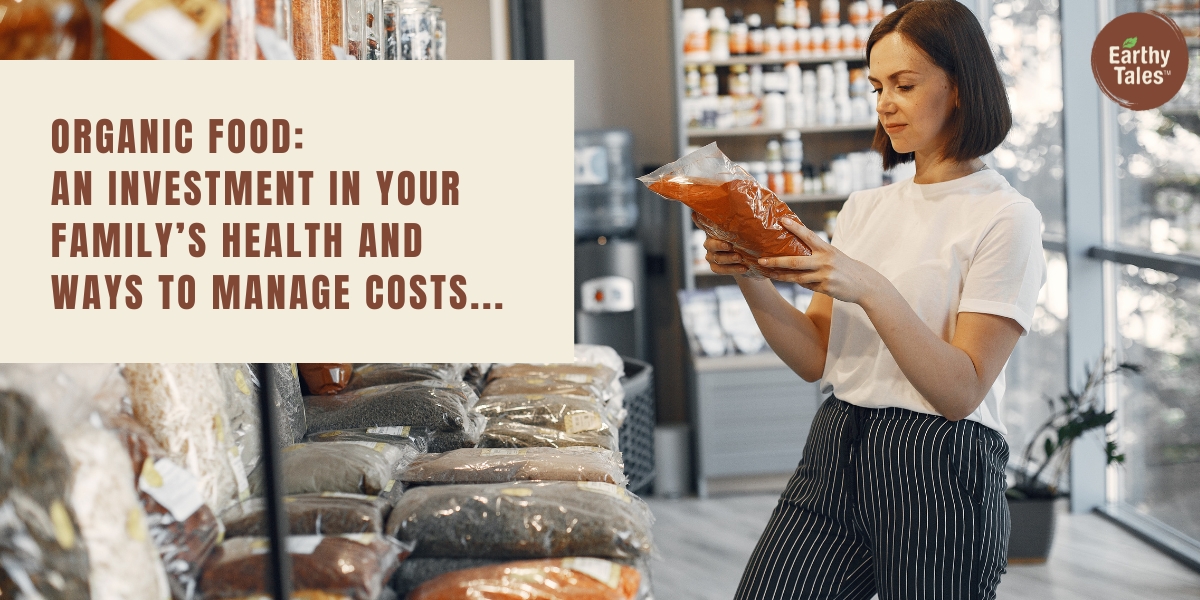Organic food does not choose as a fashion; this is an investment in health, from which the family will be reaping benefits for many years. Organic foods are grown without adding synthetic pesticides or fertilizers and are devoid of any other harmful chemicals. It's simply pure, nourishing food to lead you to a healthy way of life.
But the perceived higher cost of organic food is indeed one of the deterrents to many families. The article is written on why organic food is, in simple words, such a great investment in your family's health and gives some very good advice, all common sense, on how to make it a little more affordable.
Why Is Organic Food a Smart Investment for Family Health?
Reduced Exposure to Chemicals: Organic farming is, therefore, free from the application of any synthetic pesticides or fertilizers, which might later pose danger to your family. Pesticides and chemicals have been, through studies, associated with many health problems starting from simple allergic reactions to very severe conditions like cancer and endocrine disruption.
Higher Nutritional Content: Studies indicate that organic food is often higher in some specific nutrients, such as antioxidants and vitamins, compared with conventionally produced products. These nutrients are very imperative for health in that they boost the immune system and reduce the risk of many chronic diseases.
Supports Environmental Health: When you opt for organic food, you support the health of the environment, and at the same time, this is in support of human health. Organic farming is aiming to reduce pollution, preserve water, develop soil fertility, and use energy with moderation.
How to Make Organic Food More Affordable for Your Family?
Organic food is generally quite expensive, but it is possible to make it relatively cheap and affordable for household use.
Plan and Prioritize: Build your meal plan around organic foods and those that give you the best value for both cost and nutrition. Priority has to be given to the organic items that have more pesticide residues when grown conventionally, e.g., apple, strawberry, and spinach.
Buy in Bulk: For example, it is possible to get wholesale quantities of such basic foods as grains, beans, and spices. In general, what is bought in bulk is cheaper per unit of product than that in packages, and frequent visits to the shop can be saved as well.
Join a Co-op or CSA: Join a food cooperative or a Community Supported Agriculture (CSA) program. Both local cooperatives and CSAs sell organic products, grown locally, at far lower prices than those found in grocery stores. By purchasing a seasonal share through a cooperative or CSA, you will be able to assure your family of getting a supply of produce on a steady basis.
Grow Your Own: If a small garden here is possible in this area, then take some of your own from your little garden. The pots with herbs or tomatoes, in fact, even several, will definitely pay off with money saved from buying fresh organic stuff.
Look for Deals and Discounts: Then, you may stay tuned to the sales and even use coupons about organic products, most of the time having chances to get them discounted. Many grocery stores and online retailers offer periodic discounts on organic foods.
Educate Yourself About Labels: Understand food labels to ensure you are purchasing real organic products. Some of the labels one can check include "USDA organic," which means that what you buy is produced and labeled according to pretty-rigid requirements.
Conclusion: Organic Choices for a Healthier Tomorrow
It means that buying organic foods for the family is a well-valued investment in health. It can be costly at first glance, but possible savings from fewer health problems and environmental preservation, combined with the long-term potential health benefits, are just invaluable. So, with some savvy tips on how to buy organic, you can make this healthy choice a manageable part of your family's lifestyle.

